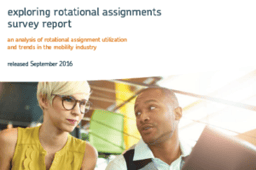Predicting who will be a successful expatriate

I have always admired people that you might describe as "successful expatriates." They just seemed to have certain characteristics that I felt made them really cool people.
Having been an international relocation counselor for a number of years who supported employees and families heading off on expat assignments, I felt from the first phone call like I could tell whether someone was going to be successful or really struggle with the experience. While I was always trying to find ways to really provide helpful support, I knew that ultimately while I could alleviate many of the challenges of getting them there and back, while on assignment they were going to be immersed and would draw on their own personal and family resources. A new study has some really interesting insight on the specific profile of a successful expatriate.
What are those characteristics?
- emotional stability
- openness to change and an ability to adjust/adapt to different customs, perspectives and business practices
- cross-cultural interest and sensitivity
- very strong interpersonal skills
- flexibility
- resiliency
- respect for diverse viewpoints
- a high level of autonomy
- and...a sense of humor
As expatriate assignments are both challenging and expensive, maybe more companies should consider psychometric assessments to help select and/or support their expatriates.
"Psychometric assessments that provide insights into job-related values, motives and interests can help you to select the right candidates for expatriate assignments," said Marinus van Driel, director of professional services for cut-e US. "With these insights, you can ensure that the expectations of both the individual and the organization are met, and that both parties benefit from the opportunity."
The biggest pushback that I hear from corporate clients is that costs are an issue and, while I do understand that, maybe adding these to your expatriate management program could actually save you money? That is where more metrics would help support that proposition.





Please sign in or register for FREE
Sign in OR sign up to become a registered The Forum for Expatriate Management website user
Subscribe here